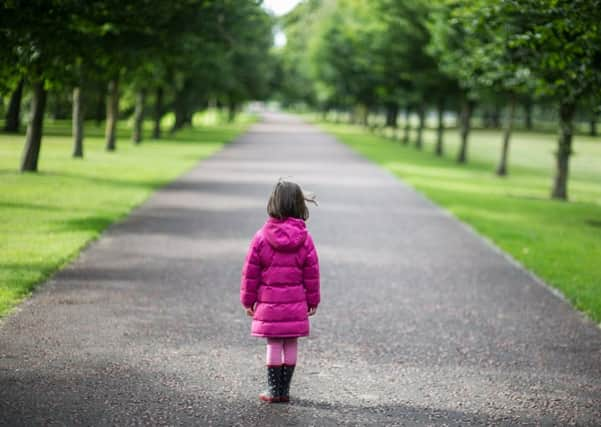Children with different sex development need more help – Ellie Magritte


About once a month in Scotland, a midwife will spot when a baby with DSD is born because their genitals look different. DSD can also be diagnosed in young girls. For example, some girls don’t start their periods and then doctors discover she is a girl with XY chromosomes and internal testes that produce testosterone. Because her body is insensitive to testosterone, it transforms into oestrogen and the girl experiences an otherwise typical female puberty.
Either way – diagnosis at birth or later – parents and child are often left to deal with what are difficult, intimate issues with little support.
Advertisement
Hide AdAdvertisement
Hide AdSome eight years ago I helped develop the website www.dsdfamilies.org to provide information for families who, like us, had learnt their newborn had a DSD and were sent home with our daughter without any further support or advice. Since then, DSD Families has become an internationally renowned Scottish/UK charity and a go-to resource for families and professionals. We have a website for young people called www.dsdteens.org. And our own daughter has grown up to become a delightful, smart and well-informed young woman.
DSD Families has just published the largest consultation ever held with young people with a DSD and their parents. The responses were variously cathartic, joyful and painful. A father of a four-year-old said: “I still don’t understand what is going on.” Another parent told us: “I just got a letter with my son’s diagnosis. That was it. A letter. I needed someone to talk to, to talk to me.” All parents asked for help in talking about DSD with their children.
One focus group grappled with the challenge of how to access support while protecting the privacy of their child. They said: “This is a private thing – so we don’t want to share this with many people. And because no one knows anything there are no challenges, other than the challenge to keep this all to yourself. And this leads to having no support at all.”
The emerging voices of children and their families need to be heard and nurtured. Our report, Listen to Us, comes at a time when governments everywhere are questioning whether they should “do something” about what they usually call “intersex”(hardly any children or families use that term). But “doing something” requires knowledge and awareness.
Our experience from every single encounter with elected politicians and civil servants over the last two years is that, while there is tremendous goodwill, there is a lack of understanding about what DSD is and how to improve support to children and families.
We can do better. Why shouldn’t Scotland be the best place in the world for a baby and a child to grow up with a DSD, with the Scottish Government, NHS Scotland, charities and others coming together to deliver sensitive healthcare and provide well-rounded support?
Part of that is about having a supportive society that is well-informed. Some of the debate we have seen – such as on how to categorise sex in the Census 2021 – has shone light onto DSD, but often with incomplete, inaccurate or sensationalised information. We must do better. That is the least our children deserve.
Ellie Magritte, a pseudonym, is founder and trustee of charity DSD Families